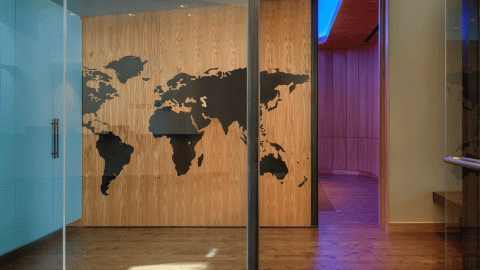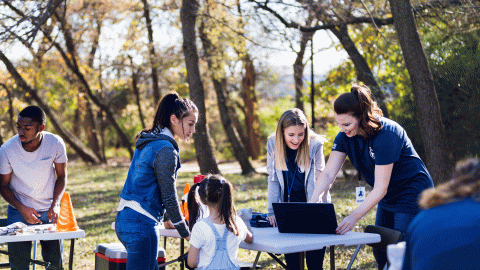
These innovations are driving collaboration in the Cascadia region
As far as enviable commutes go, a short hop in a seaplane, flying over water and past snow-capped mountains, is up there.
Connecting Seattle and Vancouver, a recently launched flight route is testament to the growing ties between the locations.
The two-way trading relationship between Canada and the United States remains one of the largest in the world – and the links between British Columbia and Washington state are growing. In 2016, the launch of the Cascadia Innovation Corridor formalized the connection. And a July 2019 study also found that a high-speed rail line connecting Vancouver, Seattle and Portland could bring $355 billion in economic growth in the region.
Here are a few of the ways this region is coming together.
[Subscribe to Microsoft on the Issues for more on the topics that matter most.]
Innovation at scale
Microsoft, along with many other business, academic and research institutions, has been working to maximize the opportunities the corridor presents – and the Canadian Digital Technology Supercluster consortium is one example.
Bringing together names in tech, healthcare and natural resources, this consortium hopes to advance technologies by developing innovation and talent. It will also be a boon to the local economy, with the goal of creating 50,000 B.C. jobs over the next 10 years, fuelling growth across multiple sectors and expanding opportunity across the region.
A meeting of minds
Home to some of the world’s leading research and medical organizations, the Cascadia region is also aiming to become a global leader in biomedical data science and health technology innovation.

Accelerating cancer research has been a key target. Working in collaboration with the Fred Hutchinson Cancer Research Center, Microsoft has established the Cascadia Data Discovery Initiative, which is tackling the barriers that make research breakthroughs difficult, such as data discovery and access.
Microsoft’s partnership with BC Cancer is taking another approach to finding a cure for the disease. Using Azure, scientists can collaboratively analyze vast amounts of data, accelerating the pace of research. Interns from the Microsoft Garage program have been working to take this a step further, using the HoloLens platform to create mixed reality tools to help researchers visualize the structure of a tumor.
Inspiring the next generation
Work is also happening at the grass-roots level, helping to create the next generation of graduates ready to build the technologies of the future. Through a partnership with Microsoft, the British Columbia Institute of Technology is delivering a first-of-its-kind mixed-reality curriculum, with the goal of training students for jobs in digital media and entertainment along the Cascadia Corridor.
British Columbia students are also benefiting from a Microsoft initiative to help high schools build computer science programs. The TEALS program first started in Washington state in 2009 and recently expanded to B.C. It pairs computer science professionals with teachers, giving schools the training and support to help their students build skills for in-demand local careers.
A lesson for others
The Cascadia Corridor is already helping Vancouver, Seattle and the region achieve more than they could do independently.
A steering committee established at the end of 2018 will help build on the economic opportunities, growing human capital in the region, investing in and expanding transport and infrastructure, and helping to foster an ecosystem that encourages innovation.
For more on the Cascadia Corridor and other Microsoft work follow @MSFTIssues on Twitter.







